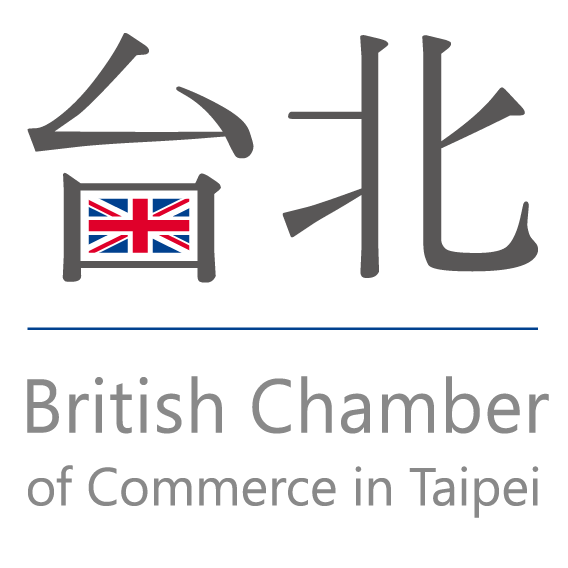Leading the Charge in Climate Action: How Nestlé Taiwan is Achieving Carbon Reduction and Sustainability Innovations
As global demand for action against climate change and sustainable development grows, companies are playing an increasingly critical role in driving climate action. This year, Nestlé Taiwan earned the "Climate Champion Award" from the British Chamber of Commerce in Taipei, recognising its exceptional efforts in reducing carbon emissions, promoting environmental protection, and innovating packaging solutions. In our interview with Ivy Tsai, Corporate Communication and Sustainability Development Lead at Nestlé Taiwan, we explore how the company has achieved these remarkable results through innovative carbon reduction measures, employee training, and supply chain collaboration.
Since launching its Net Zero Roadmap in 2020, Nestlé has been committed to achieving net-zero emissions by 2050. Nestlé Taiwan has not only adopted the global group’s strategies but also tailored them to meet local needs, advancing sustainability through both internal and external collaborations. Ivy Tsai noted, "For over 150 years, Nestlé has built its business philosophy around ‘Creating Shared Value,’ addressing social issues through unique solutions that create long-term business value. Today, climate change is one of society’s greatest challenges, and as one of the world’s largest food companies, we have a responsibility to drive industry transformation."

From Packaging Reform to Supply Chain Carbon Reduction: Pioneering Carbon Innovation
Building on its commitment, Nestlé Taiwan continues to lead the industry in carbon innovation, consistently advancing various environmental initiatives. For example, the company was the first to remove plastic lids and spoons from milk powder cans and replace plastic straws with U-shaped paper straws in Tetra Pak cartons. These changes reduce plastic waste by 54 tonnes and eliminate 27 million plastic straws annually. By collaborating with supply chain partners to promote recyclable flexible packaging, Nestlé Taiwan cuts plastic usage by 106 tonnes each year. Additionally, by introducing an automated warehousing system to optimise load capacity and reduce transport distances, it is estimated that 175.58 tonnes of carbon emissions will be avoided annually.
As the first foreign food company in Taiwan to complete a carbon footprint audit, Nestlé has also led its supply chain in assessing carbon footprints and continues to drive emission reductions. In 2022, eight locally produced ground coffee products received carbon footprint labels, with milk powder products joining the initiative in 2024. Nestlé brought together industry, government, and academia to establish carbon footprint standards for milk powder, further demonstrating its commitment to environmental sustainability.
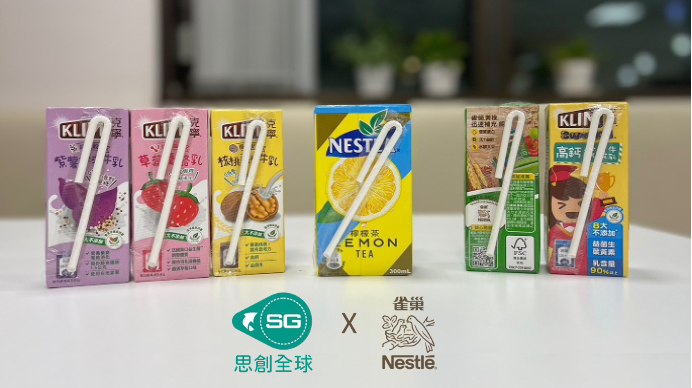
Promoting Sustainable Agriculture: Facing the Challenges of Climate Change
With climate change posing a serious threat to the global coffee industry, Nestlé, as a leading food company and prominent coffee brand, announced a CHF 1 billion investment in the "Nescafé Plan 2030" to reduce the environmental impact of coffee. Through research and development, the company has introduced high-yield, climate-resilient Arabica coffee varieties such as “Star 4,” which increase production while reducing carbon emissions. Ivy Tsai explained, “With drastic climate changes potentially impacting coffee harvests, we hope that these innovations will allow farmers to continue sustainable practices, stabilise yields, secure incomes, and mitigate the risks associated with climate change.”
However, Nestlé’s innovations are not achieved overnight. Every change is backed by thorough research and analysis to ensure that actions are taken cautiously without compromising product quality or consumer benefits. Ivy Tsai emphasised, “We never compromise on product quality or consumer interests. All transformations are carefully considered to meet environmental goals and consumer expectations.”
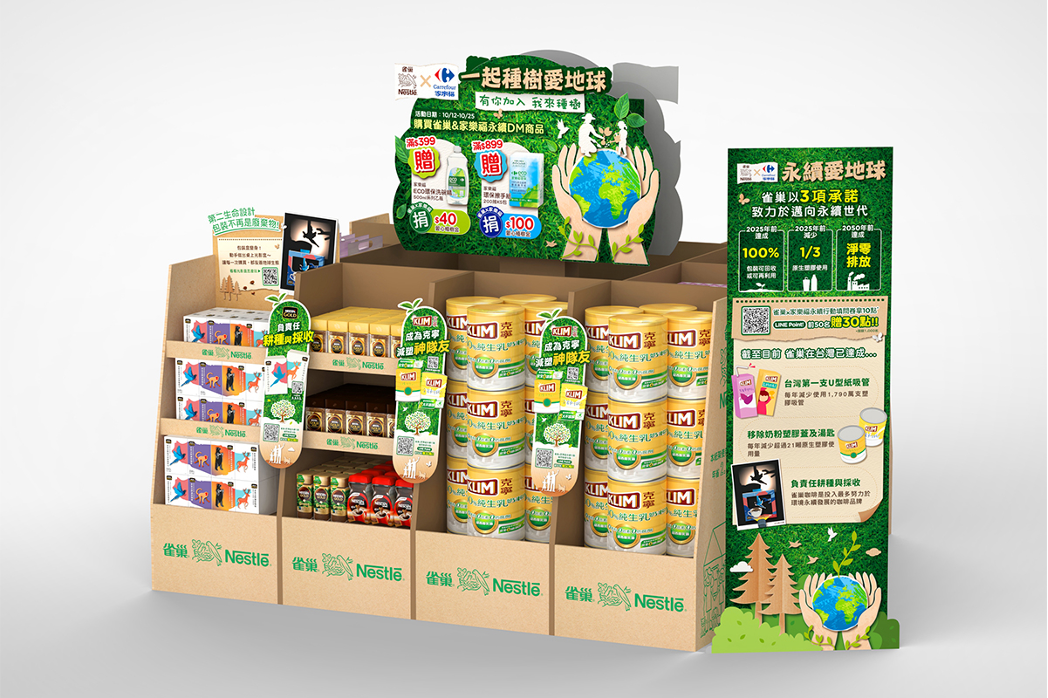
Consumer Education: Driving Sustainability from the Inside Out
Green initiatives cannot rely solely on companies; they also depend on consumers' willingness to engage. Nestlé has introduced innovative consumer education efforts by partnering with Rethink NGO to launch the "Nestlé Recycling Index," which systematically teaches consumers how to recycle Nestlé product packaging correctly. This initiative has helped millions of consumers acquire accurate recycling knowledge, with over 230,000 consumers actively participating. Ivy Tsai explained, “We hope consumers will join this effort and use their influence to spread awareness.”
Moreover, all products manufactured by Nestlé in Taiwan are made from 100% recyclable materials, with clear recycling instructions on the packaging to encourage consumer involvement in environmental protection.
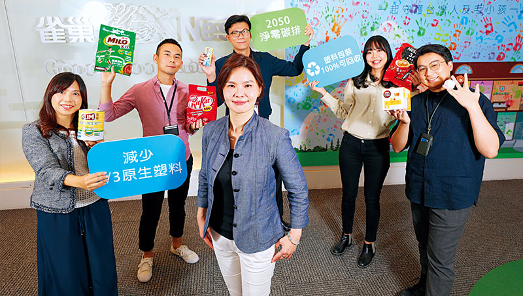
Leading Industry Change and Encouraging Broader Participation
Nestlé Taiwan has been a forerunner in sustainable action within the industry, and increasingly, more companies are joining the green movement. Ivy Tsai remarked, “Our colleagues are delighted to see that other companies in the industry are adopting similar sustainable actions, which shows our efforts are being recognised and that we are on the right path.” This inter-industry collaboration promotes overall environmental improvement, and as more companies participate, the costs of carbon reduction measures decrease, making sustainable action more accessible.
Nestlé understands that large-scale environmental change can only be achieved through industry-wide collaboration. In addition to working closely with its supply chain partners, the company also promotes sustainability awareness through advocacy, encouraging both consumers and other industry players to engage in green initiatives.
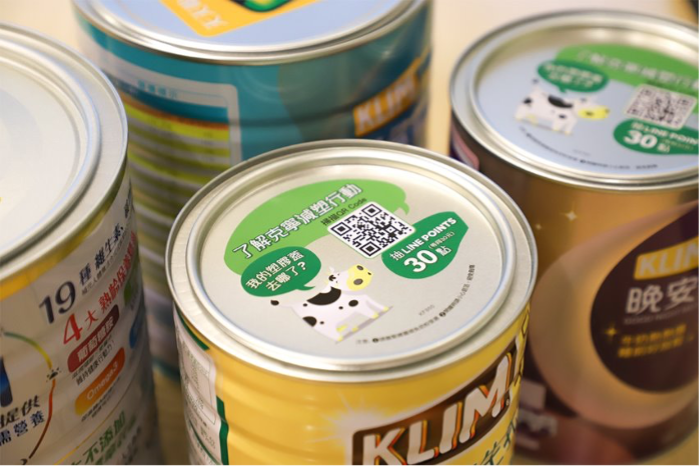
Continuing the Journey Toward a Sustainable Future
Looking ahead, Nestlé Taiwan aims to collaborate with more companies and partners across different industries to further promote green initiatives and create broader impacts. As Ivy Tsai noted, "Currently, 70% of our carbon emissions come from raw materials. We will continue to explore innovative methods, aiming to develop more sustainable packaging and reduce our environmental impact."
Through innovation and collaboration, Nestlé hopes to inspire more companies to join the journey toward a greener, more sustainable future. By working together, businesses can create a future where every action contributes to positive environmental change.
